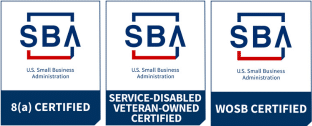According to Forbes, Generation Z is a rapidly growing generation that makes up 40% of US consumers. Gen Z is described as anyone born between 1997-2012; they are the youngest generation aged 6-24. This age group is a robust consumer base because much of this population is not yet responsible for bills but has disposable income.
Many companies may think they can attract this tech-savvy generation the same way they draw their older Millennial counterparts. However, Gen Z has developed some essential differences that should be explored and capitalized on.
Let’s start by looking at some of the similarities between Millennials and Gen Z. Campaign Monitor conducted extensive surveys of Gen Z and Millennials, with the majority of Gen Z respondents being ages 18-24 to compare marketing trends between the two generations. Gen Z has similar email habits as Millennials, with 90% of Millennials regularly checking their email vs. 81% of Gen Z. Email campaigns can be particularly effective at targeting Gen Z; 66.9% reported they receive 20 emails or less each day, making it much easier for marketers to catch their eye.
Email campaigns can be very effective if they prioritize some key points. Emails must be smartphone friendly. If the recipient has to change the sizing and scroll weird ways to read something on the email, they will simply move on to the next one. A cohesive stream of information the viewer can scroll up and down to view is a simple way to ensure your branding reaches its audience.
Secondly, make the most essential headlines the largest and the first thing viewers will see when they open your email. This leads to the importance of how your information is organized; everything should follow a logical flow, so your audience isn’t having to search for more information in an unorganized pattern.
Like Millennials, the youngest generation cares about the people behind the companies they are buying from and responds well to companies that highlight their workers and values.
The context in which Gen Z adults came of age is crucial to consider when trying to target this group. They grew up playing Pac-man on their mom’s cool new Blackberry but quickly found an iPhone in their hand by puberty. They grew up with an immeasurable amount of information being thrown at them at all times and have a much more global perspective compared to generations before them because of this.
Social media has resulted in Gen Z being a much more socially and politically aware generation. Marketing studies have backed this up, showing that social neutrality is a quick way to lose Gen Z as a customer base.
Morning Consult is tracking how current events impact the worldview of 1,000 Gen Z Americans aged 13-23 starting in May of 2020. We can use this information to see how marketing strategies will need to change to more efficiently target this generation.
The Morning Consult study shows that Gen Z has much less trust in institutions than ever before. With news media dropping 13 points in just two months, advertising on Good Morning America will not attract the attention of this skeptical generation. The coronavirus outbreak and the social justice movements are the two most impactful events to Gen Z, with 85% reporting that they believe they can change the future through their choices.
All of this shows just how critical it is for businesses to take a stand on at least some social issues if this generation is your target audience. To an even greater extent than Millennials, Gen Z is very loyal to companies that share similar values. Similar to the college kids of the 1960s, this is a boycotting generation.
Not all online advertising is equally effective at targeting Gen Z. According to Campaign Monitor, Gen Z prefers to interact with brands through their social media accounts, then email, with the two least preferred methods being chat and a company’s blog. If your business’s customer base is largely Gen Z, you will have to develop a more complex social media strategy. Gen Z doesn’t prefer just one social media platform; they are relatively active on all the major platforms, so it is more effective for brands to consider how all of their platforms interact to tell their story instead of blasting the same content on all of their accounts.
Figuring out how to tailor all of your media platforms to complement each other can be tricky and time-consuming, however critical it may be to engaging your younger audience. The Miner Agency works closely with its clients to formulate a concise, powerful social media strategy to maximize their reach. If you find your marketing campaigns stagnating, contact the Miner Agency to find ways to recharge your company’s relevance to this younger generation.

